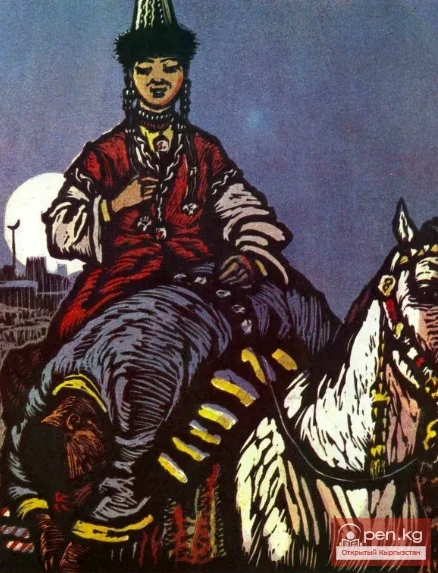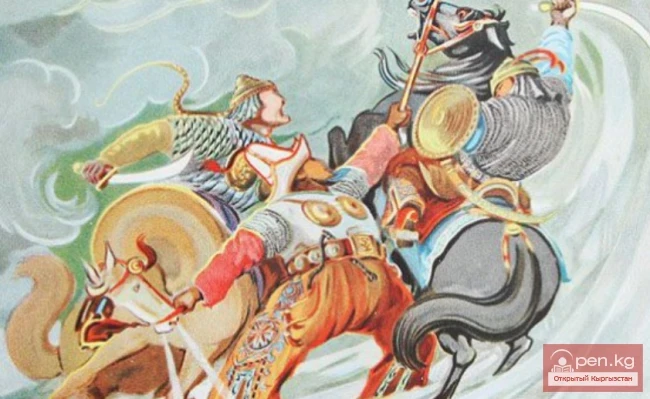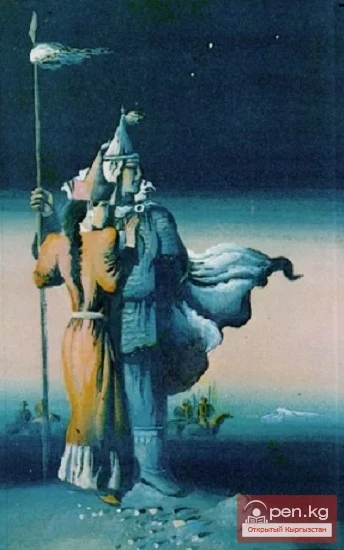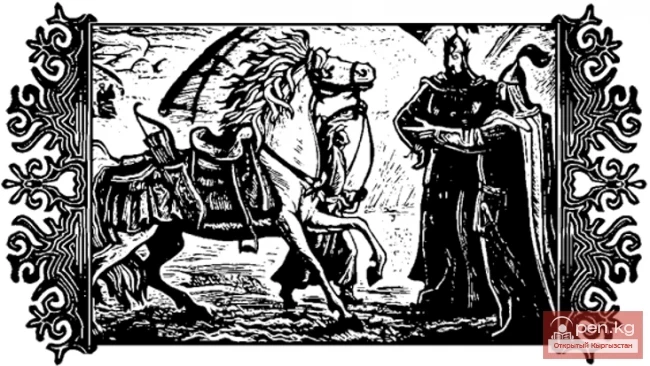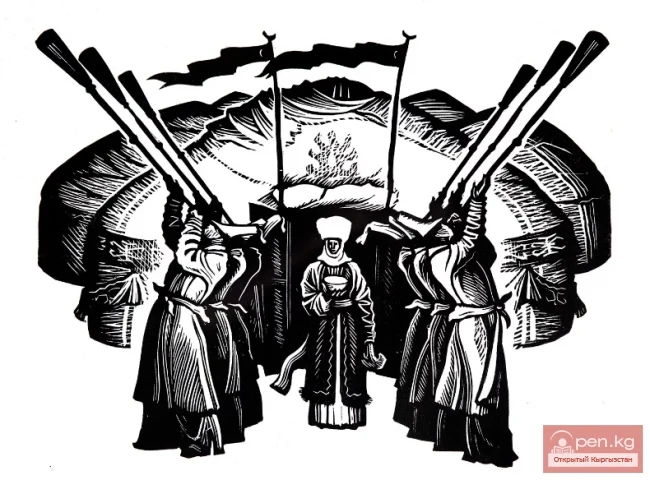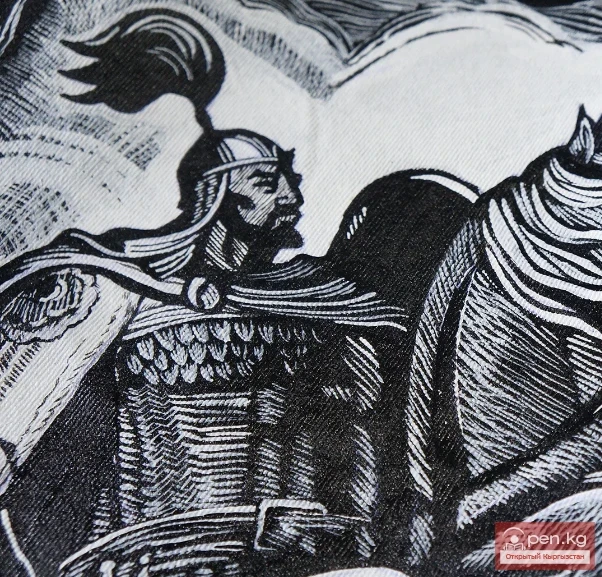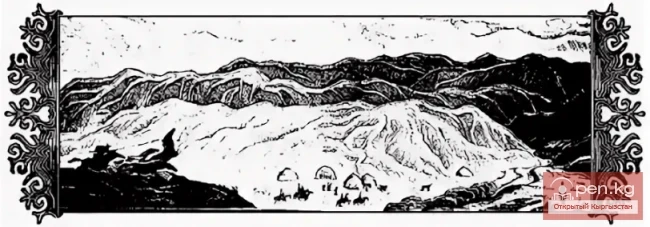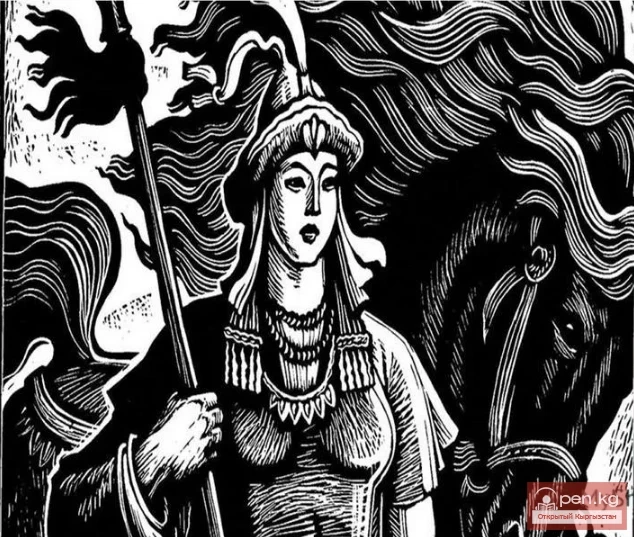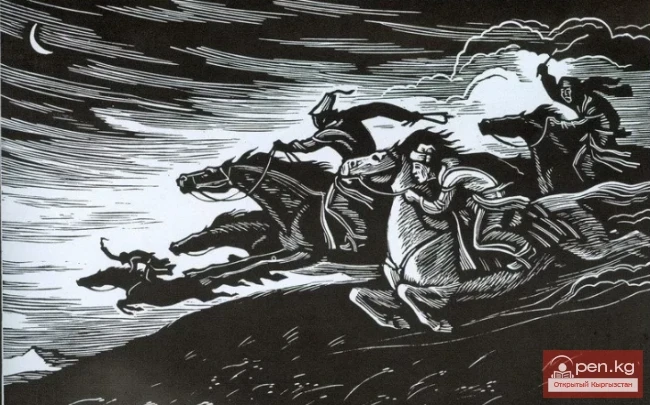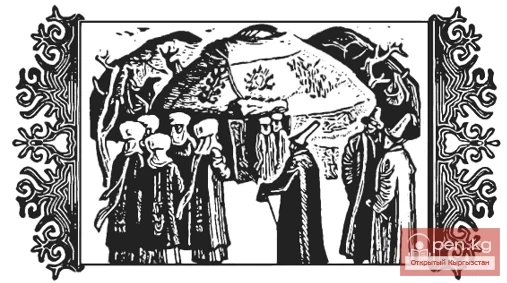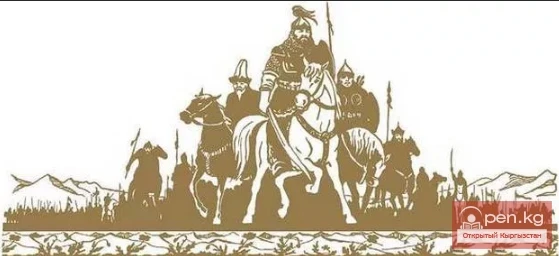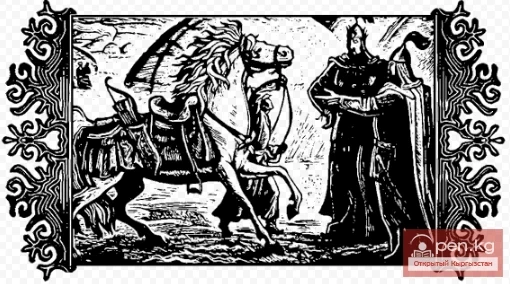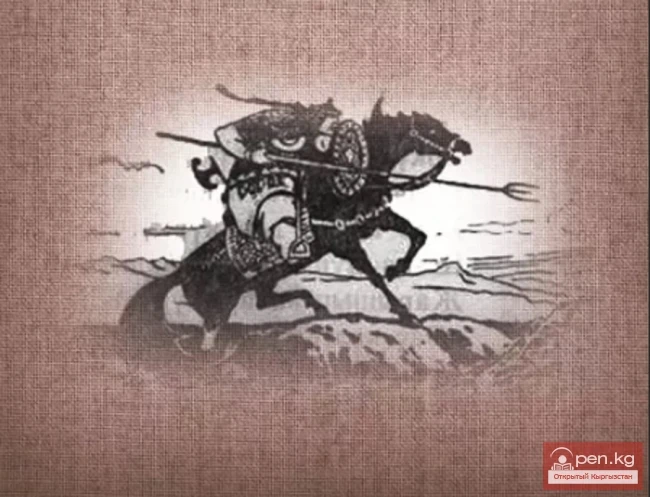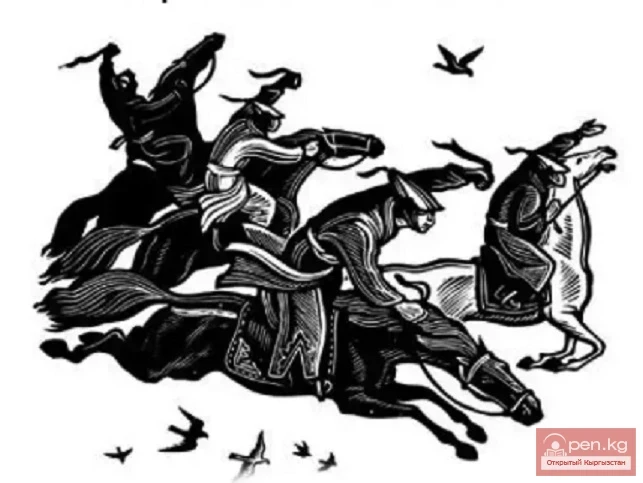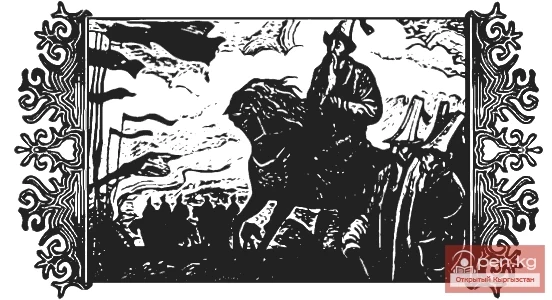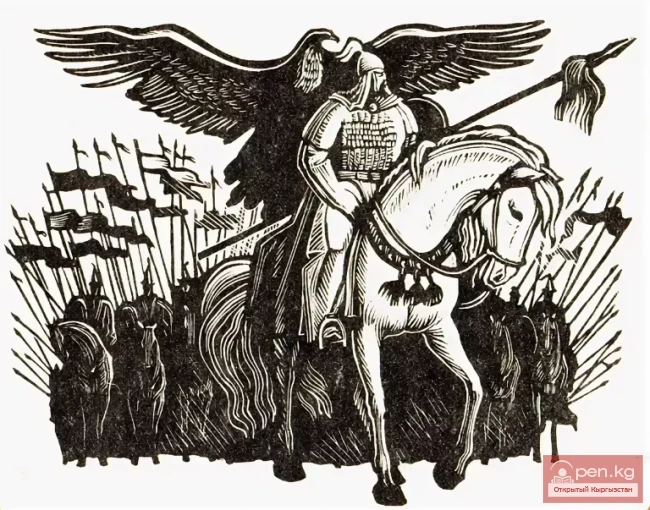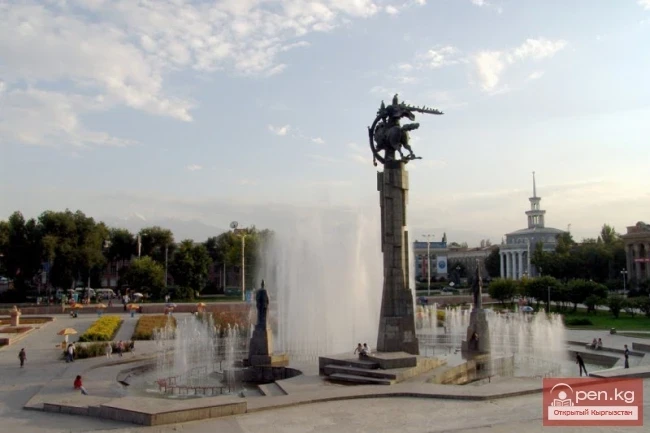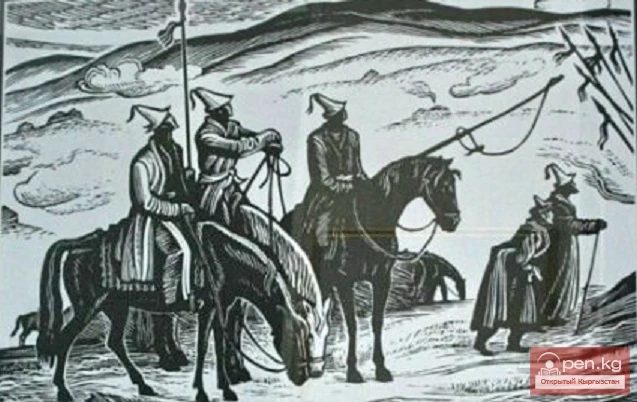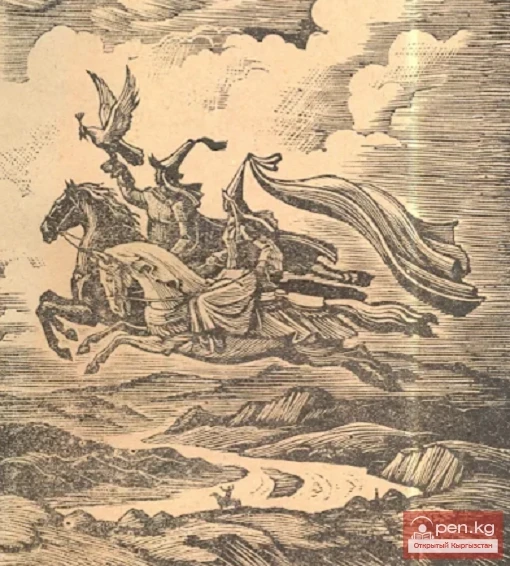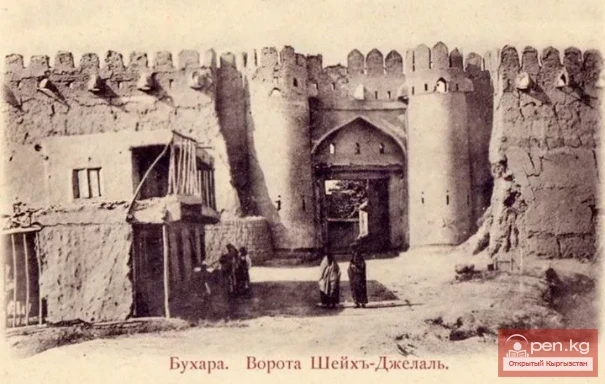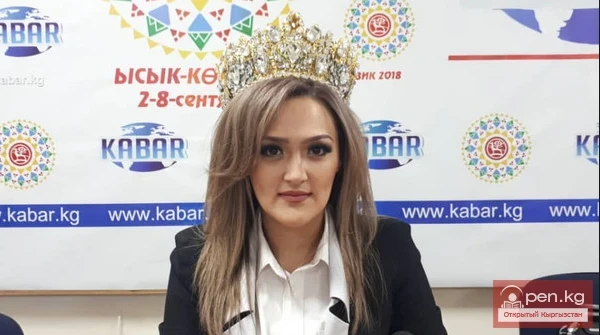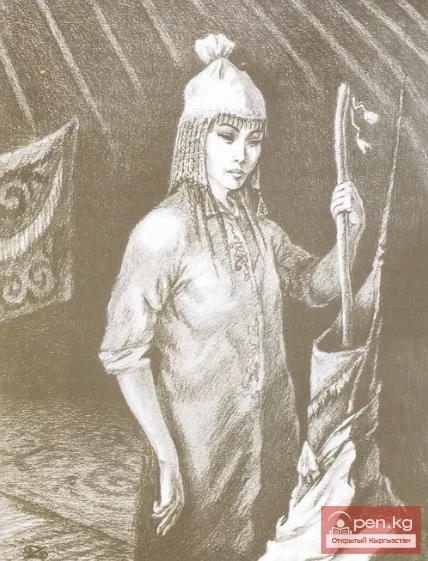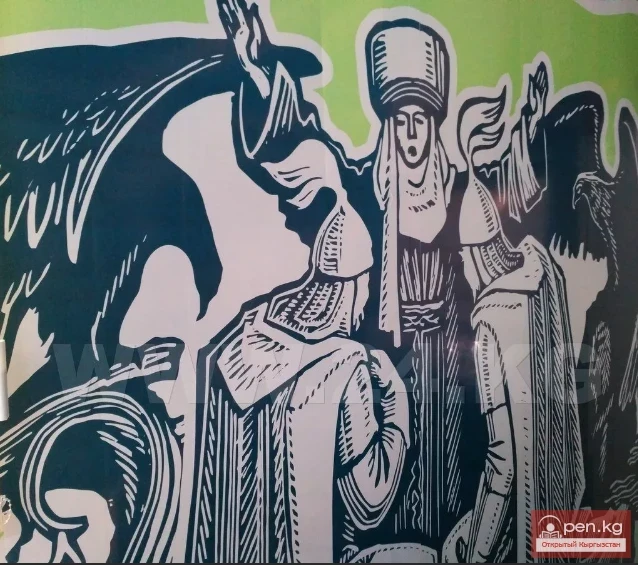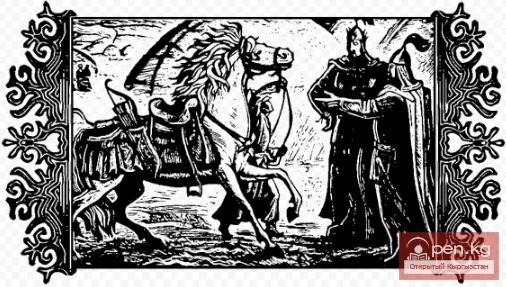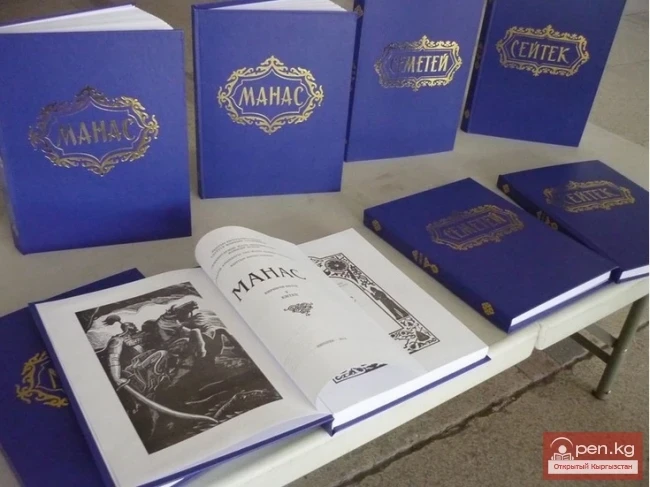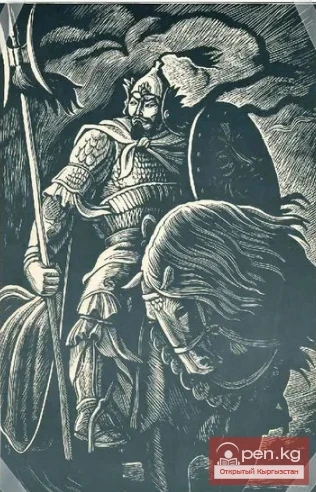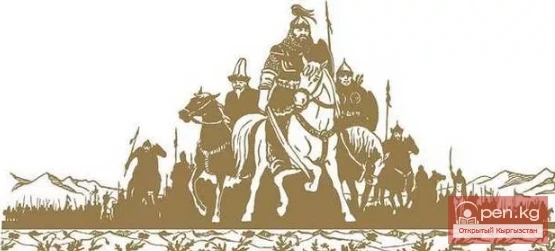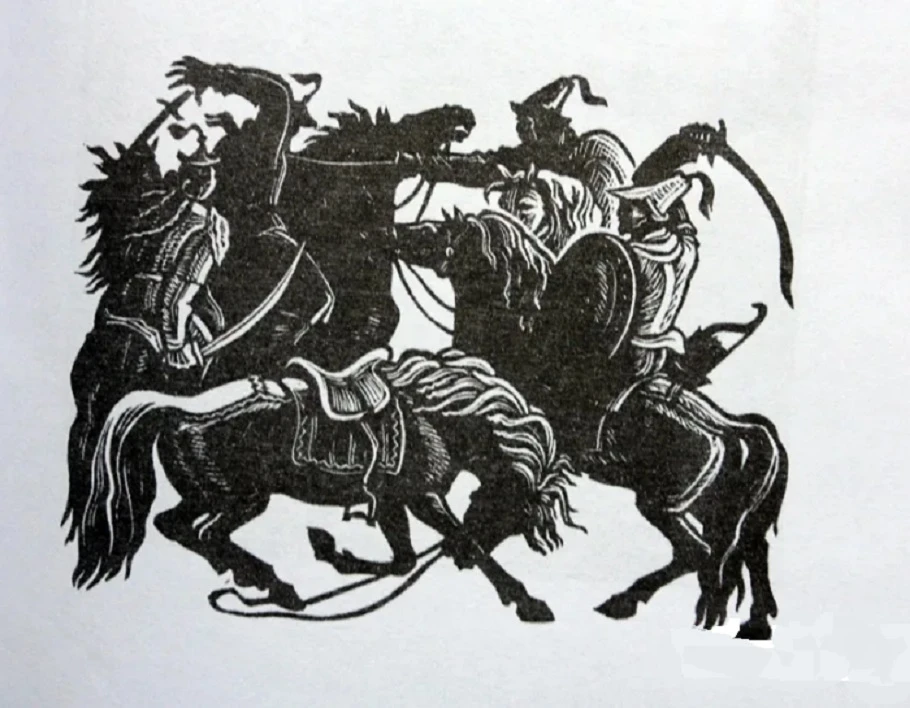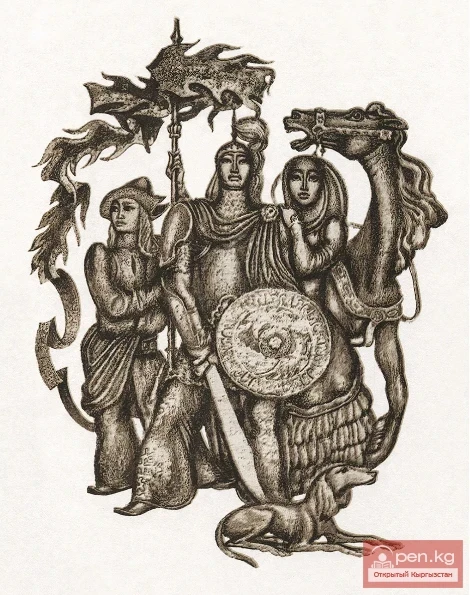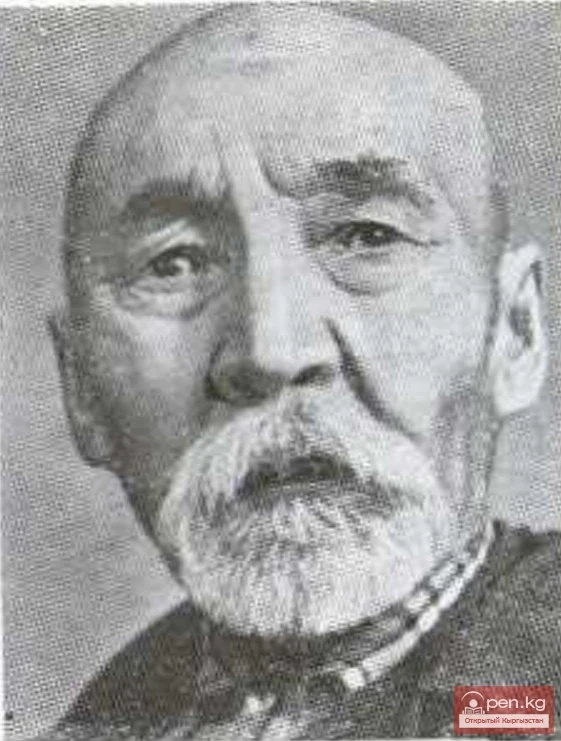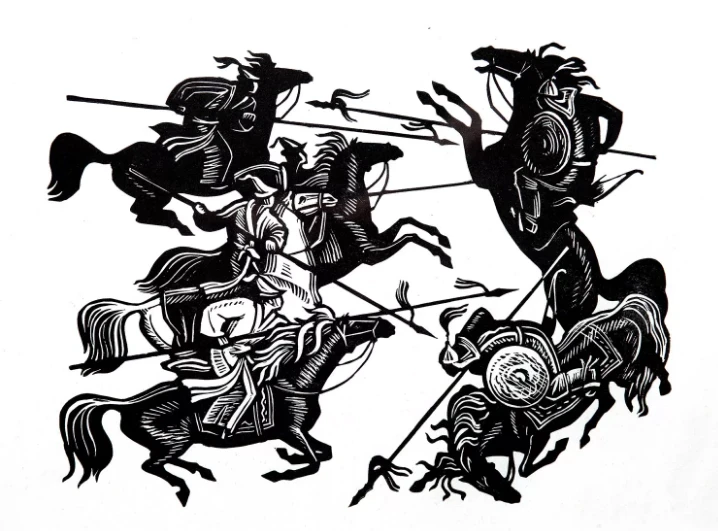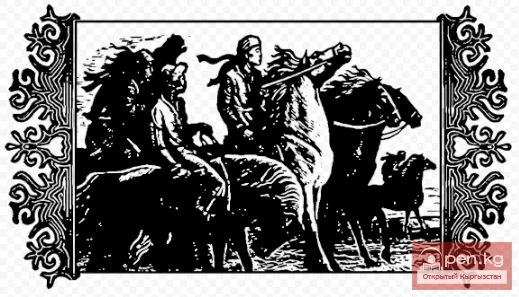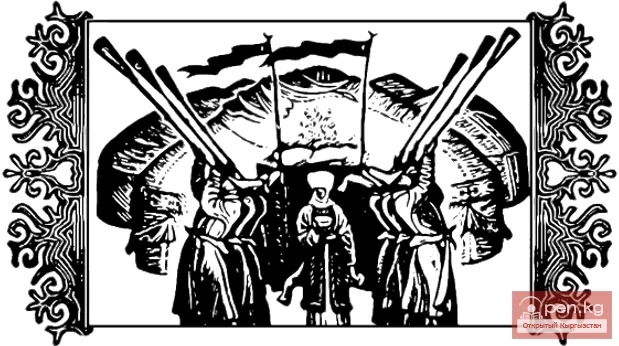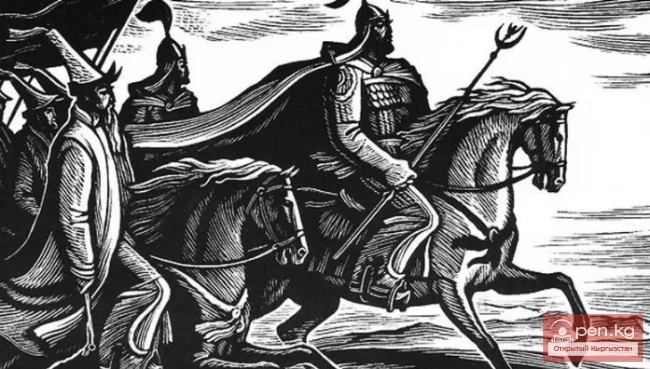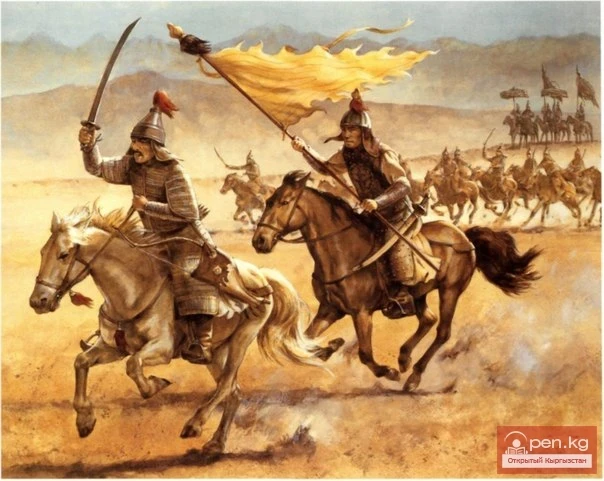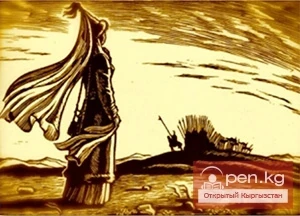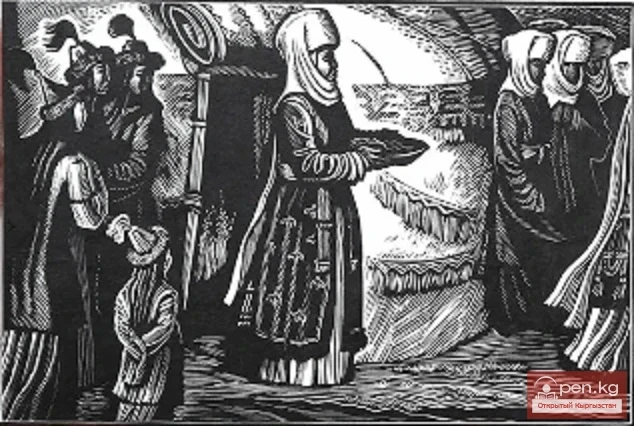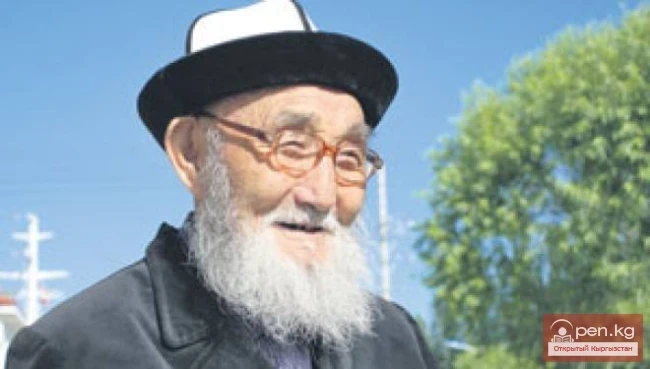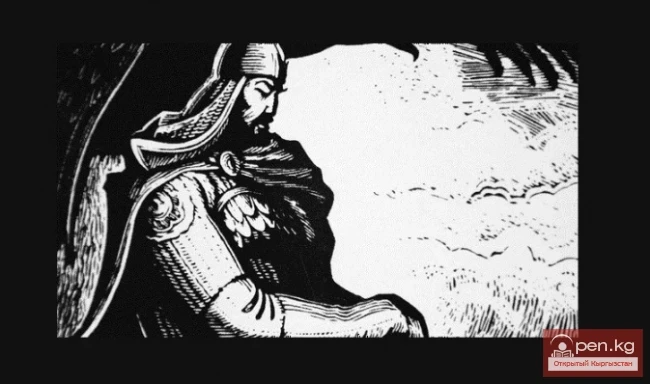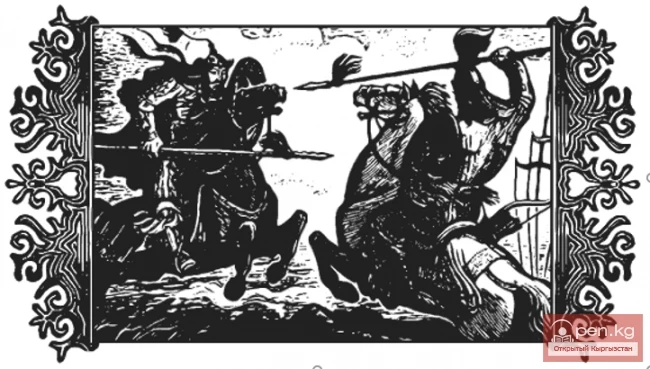
KANYKEY - MANAS'S FRIEND
The epic "Manas" is an encyclopedia of the life of the Kyrgyz people. It widely reflects the centuries-old life of the Kyrgyz: ethnic composition, economy, everyday life, customs, morals, judgments about human virtues and vices, ideas about the environment, religious views, medical, geographical, and other knowledge.
Manas is the main, central character around whom all others gather. Manas is a hero who, along with his retinue of 40 knights, accomplished remarkable feats with the aim of creating a unified state.
The grateful people elect him as their khan.
Uniting the Kyrgyz, Manas undertakes a series of campaigns against neighbors who constantly raided and devastated Kyrgyz lands. He creates a powerful unified state of the Kyrgyz.
Kanykey is Manas's wife, one of the main heroines of the epic. Her real name is Sanirabiyga. She receives the name Kanykey after Manas's proposal.
In Kyrgyz, Kanykey from "Kan Nikaýi" means "wife of the khan" (the betrothed of the khan).
The merit of the epic is the creation of the ideal female image of Kanykey—a mother, wife, and friend. Kanykey is the beloved heroine of the people. Her image is an artistic expression of the people's ideals about a person's place and behavior in the family and clan. The verses of the epic repeatedly express the idea that Manas became Manas (achieved the glory of a hero) thanks to Kanykey. Manas's friends and the entire Kyrgyz people say: "What a king should be depends on the woman."
Kanykey is a representative of the people. In her image, all the best and brightest that the people have cherished for centuries is gathered.
Talented storytellers—manaschi—managed to create and convey to us an incredibly cohesive image of the ideal epic woman in Kanykey.
Kanykey—Princess
To convey general information about Kanykey, the epic uses the episode of the proposal. Manas is offered to marry according to established custom.
Manas agrees, and after long and detailed instructions, sends his father Jakyp to search for a bride. After traveling through many countries and not finding a suitable girl, Jakyp arrives in the land of the Tajiks. In Bukhara, he finds a worthy bride for his son. She is the beloved daughter of the Tajik ruler Karakhan (the main khan). Jakyp secretly sneaks into the khan's garden and, hiding in the bushes, watches the future bride at the girls' games.
Jakyp sees many fabulously beautiful girls. They dance slow, languorous dances to the moaning sounds of the chang. But the most beautiful of all is Princess Sanirabiyga, the daughter of Karakhan.
"This girl is born for my son," decided Jakyp.
The dignified and wise speech of Kanykey, her pride and resilience, and faith in her own strength suggest to Jakyp that Kanykey is capable of being a true support for her husband.
The perceptive Jakyp does not overlook such qualities of the future bride as practical wisdom, resourcefulness, and practicality, as well as fairness, attention to everyone, kindness, selflessness, and generosity.
The most necessary quality of a woman—the mistress of the house, the keeper of the family hearth—hospitality, which requires the ability to be courteous, polite, and respectful to anyone who crosses the threshold of the yurt, is particularly emphasized, because, according to the norms of nomadic society, it was customary to welcome any traveler caught in bad weather and twilight, fatigue, by offering hospitality and treating them with whatever was available in the house.
And over all these characteristics, being key, are scattered expressions: "She deeply considers her thoughts," "Her spoken word will satisfy everyone," "All her deeds are reliable," "By wisdom, she is equal to ten women at once"—all these phrases emphasize the wisdom and intellect of Kanykey.
"Her ability to foresee borders on supernatural power, magic. But the epic presents this distinctive quality not as some influence of supernatural power, but as a consequence of the foresight and wisdom of the heroine," writes one of the first researchers of Kanykey's image, candidate of philosophical sciences S. Musaev.
Appraising the qualities of Karakhan's daughter, Jakyp proposes to the girl and, agreeing to the unprecedented size of the kalym set by her father, returns home. After the people gather livestock to pay the kalym, Manas, accompanied by 12,000 warriors and a 40,000-strong army, sets off with his father to Bukhara. Setting up camp near the city, Manas sneaks into the house where Sanirabiyga sleeps. During this first meeting with the bride, Manas has a quarrel with her. She slashes his arm with a dagger, and he knocks her unconscious with a kick.
Angered by the inaccessibility of the khan's daughter, Manas strikes the battle drum, but his father and wise elders stop the army.
Invited to the wedding feast, Manas sits alone in the yurt designated for him for two days. In his anger, Manas decides to destroy the city of Karakhan. To calm Manas's anger, Sanirabiyga, as a sign of reconciliation, goes to a height and lets her white scarf fly in the wind.
Taking all the blame for the quarrel upon herself, Sanirabiyga approaches Manas and takes the reins of his horse. Becoming Manas's bride, Sanirabiyga changes her name and takes the name Kanykey. The chachyla ceremony—scattering sweets on the bride and groom—is performed.
For the wedding celebrations, forty yurts covered with felt are set up. And here it turns out that Kanykey is the most skilled craftswoman, unlike any other in the world. All her free time, she, along with her friends, engaged in handicrafts—sewing and embroidering men's and women's clothing, blankets and pillows, carpets and bedcovers, gathering necessary household items for life. It turned out that she had collected so much wealth that it would be enough to provide for forty healing couples. To the surprise of her parents, Kanykey, despite being the only daughter of the main khan, is hardworking, knows how to create comfort, and is ready to be the keeper of the hearth as the bride of a hero, a helper to her husband in family life, and a mother who will raise and educate children.
Women of Kyrgyzstan
